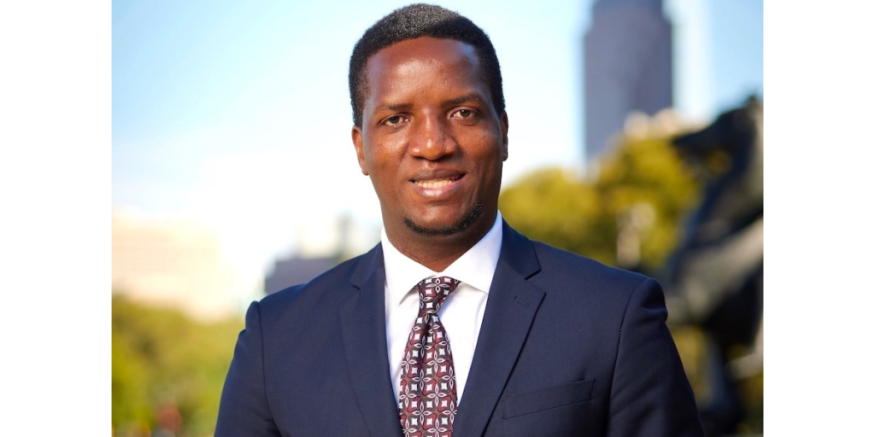
Practically every day, one electric utility or another announces a clean energy transition goal or launches a use case about how it's leveraging advanced technologies to improve customer experience and achieve decarbonization targets. Since governments adopted the Paris climate accord, the stringency of decarbonization targets has grown as more nations, regions, and enterprises have announced new measures. To decouple economic growth from greenhouse gas emissions, corporations and governments are investing significantly toward a net zero transition. A coordinated worldwide transition from fossil fuels is necessary to spark new ideas and innovation that yield inclusive, equitable, and a just transition for all.
Energy usage is the primary cause of carbon dioxide emissions, accounting for 83% of worldwide emissions. Annual carbon dioxide emissions into the atmosphere have grown rapidly, estimated at over 34 billion tons annually. To lead the change, organizations need to keep innovating. Managing the rise in climate-related disasters requires firms to harness and develop a network of advanced connectivity devices, systems, platforms, and ecosystem-based enterprises to enable a sustainable Fourth Industrial Revolution. Business and political leaders should address the uncertainty surrounding the planet's future by defining science, technology, and innovation (STI) in the real-world context. The technology is developing quickly and should be used to address the adverse effects of climate change.
Dr. Joseph Nyangon, a leader in renewable energy innovation and a Harvard Business Review Advisory Council member, postulates that "the evolution of globalization, technological advances, and financialization over time have diverged economic growth and social progress hence the need for new foresight, technological governance and business models to protect public interests." Dr. Nyangon is an experienced power and utility expert tackling asset-stranding risks due to the realignment of expectations, disruptive policies, and technological innovations in the energy sector through data and advanced analytics.
His experience in clean energy transition and energy economics has helped electric utilities to tackle intractable challenges stemming from disruptive energy transition scenarios and the transition risks associated with stranded fossil-fuel assets. Dr. Nyangon holds Ph.D. and postdoctoral degrees from the University of Delaware with a concentration in energy economics and engineering systems. Dr. Nyangon also has an M.Sc. degree in computing systems which offers him a unique combination of computer systems, energy economics, and policy background critical to addressing the noble trifecta of sustainable development-economic growth, environmental integrity, and social inclusion.
To realize performance with purpose, successful leaders never rest on their laurels. Equally, to "future proof" or de-risk companies and markets, leaders must be wholly committed to thinking from the future back, even in good times. Dr. Nyangon's expertise and knowledge of power systems, computing (artificial intelligence (AI), and machine learning (ML) applications). Energy economics and policy have enabled him to tackle multiple transformational issues of the energy transition currently bedeviling electricity markets, such as changing government policy and regulatory environment, technological advancement, the scale of financing needed, and the impact on consumers and business model innovation. He utilizes his unique academic and industry experience to force discussion of hard truths, help utilities uncover unmet customer needs, and influence decision-making in a continuously changing environment.
With over 60 influential publications on various essential topics covering grid modernization, decarbonization, electrification, and digital transformation, Dr. Nyangon advises electric utilities on how to leverage advanced analytics technologies like AI, ML, IoT, and predictive analytics to generate insights that can help the industry to address the emerging trends and disruptions. He has designed platforms and solutions to enable the orchestration of end-to-end distributed energy resources (DERs), implemented energy forecasting-as-a-service, including distribution load forecasting and transmission load aggregation, improved electricity market design and grid resilience business models, and implemented dynamic pricing systems for deploying and managing electric vehicle fleets and intelligent charging infrastructure.
Energy is one of the industries that is undergoing significant transformation. The transition to renewable energy sources for electricity generation, like solar and wind power, benefits the environment and boosts economic productivity. The first step in any corporate or industrial transformation is to present a clear vision. This transition requires leaders to present a clear vision that seeks to develop, deploy, and maintain new distribution and transmission infrastructure. It also requires an optimal balance of modularity and coordination. Modularity is fundamental for insulating decisions implemented in one part of the organization from the ripple effects that the transition creates. At the same time, coordination can help to counter any lack of reliability that results from the transition. This transition is a huge investment challenge that offers a significant opportunity for long-term infrastructure investment.
Listening is fundamental to effective leadership and management, however, to develop active listening skills and drive innovation, leaders must learn to listen with great intention. Dr. Nyangon advises business executives to practice active listening: to identify problems to solve, drive innovation, establish trust, develop new product ideas, make better-informed decisions, and more. As a consultant and advisor for power and utilities innovation at SAS, he is constantly looking for new use cases that help companies develop customer-centric technology strategies and plans in energy forecasting and optimization, grid inspections, and asset management. Innovation remains the most critical part of his leadership philosophy throughout this academic and industry journey.
Companies that thrive in dynamic, competitive markets are not necessarily the smartest but the ones that can respond quickly and adapt effectively to change. Dr. Nyangon has a proven track record of helping firms to implement strategic investment decisions and accelerate customer-centric innovation and collaboration analytics to build and sustain ties necessary to generate new ideas. By following this vision, he has enhanced the speed and creativity of innovation efforts and helped commercialize novel technologies at scale. Another aspect of his innovation philosophy is advising companies to make sure that their decision-making is fast while still of high quality. As an accomplished researcher, industry expert, and author, Dr. Nyangon can help your company implement AI-and ML-powered models to reduce the layers of bureaucracy that slow business processes, thereby speeding your response to changing customer preferences and maximizing profitability.












